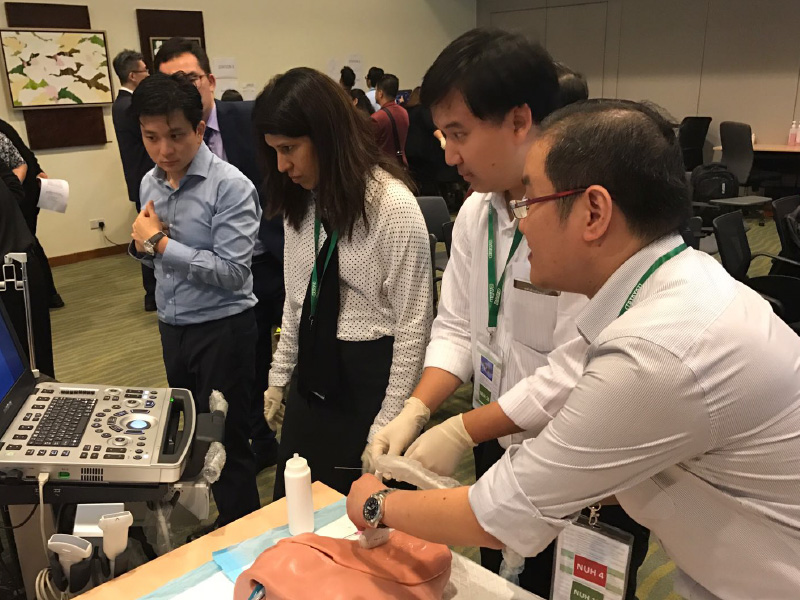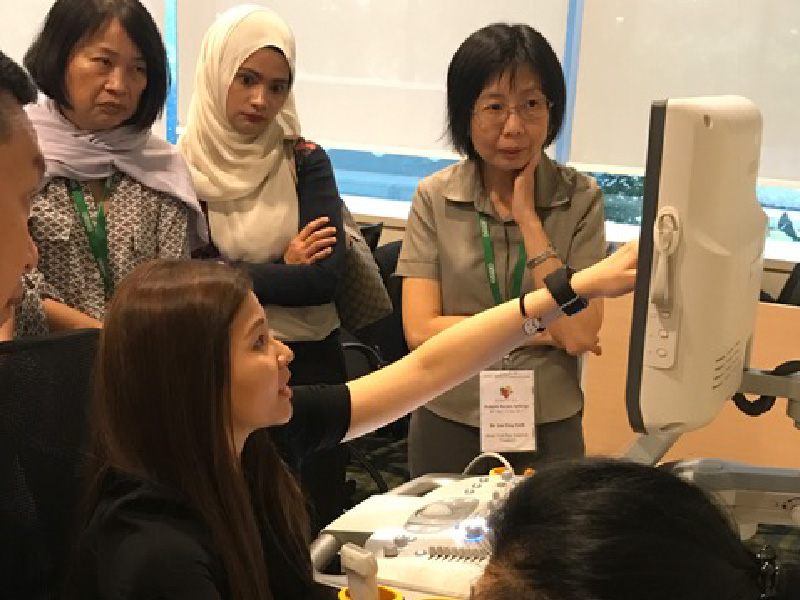Gathering Synergy in Dialysis Access Care
A two-day international conference hosted by NUS Yong Loo Lin School of Medicine in March brought clinicians from various countries together to explore ways to make dialysis treatment safer and better for kidney failure patients, Associate Professor Jackie Ho from the Department of Surgery writes.
End stage renal failure (ESRF) is a dreadful disease. An estimated 3.2 million patients worldwide suffer from this condition. In the International Comparisons chapter of the 2016 US Renal Data System annual report, six of the top 10 countries with high ESRF incidence are from Asia, and Singapore took the 5th highest position. In particular, Singapore and Malaysia have the highest incidence of diabetes-induced ESRF among all countries in the registry. While a small percentage of lucky ones are able to receive a donated kidney and undergo a successful transplant, a vast majority of ESRF patients have to rely on renal replacement therapy (hemodialysis or peritoneal dialysis) to maintain their lives. Dialysis access is the “route” enabling ESRF patients to obtain renal replacement therapy. In other words, dialysis access has become the life-line of ESRF patients.
With adequate dialysis, ESRF patients can lead nearly normal lives. However, if the plan and care of dialysis access is not well managed, a myriad of problems may develop that pose direct health hazards to patients or affect their adequacy of dialysis. The quality of dialysis access care has a huge impact on patient survival, quality of life, and healthcare resources requirements.
Although dialysis access is so important, the awareness, attention, teaching and training, resources, service quality surveillance and research on the topic are often neglected and remain rather primitive. The quality of dialysis access care in various Asian countries is still much less than satisfactory. Making the problem worse is the complexity of dialysis access care, which involves specific medical knowledge, surgical and intervention skillsets, as well as nursing technique. Healthcare professionals of different disciplines and specialties managing dialysis access are often working on their own and lacking collaboration or communication. This results in fragmented care for the ESRF patients.
Many passionate and devoted clinicians in various Asian countries are aware of the situation and have started fighting their way to improve the quality of dialysis access care in their specific socio-economic and healthcare environments. A group of clinicians founded Dialysis Access Synergy (DASy), which held the first pan-Asian dialysis access-focused meeting at the NUS Yong Loo Lin School of Medicine on March 31 to April 1, 2017. The meeting was organised by the University Surgical Cluster at NUH. The aim was to induce synergy among dedicated Asian healthcare professionals of various disciplines and specialties who take care of ESRF patients, ultimately improving the service quality of dialysis access.
This very first Dialysis Access Synergy meeting saw synergy induced among various restructured hospitals in Singapore with local organising committee members coming from the Changi General Hospital, Khoo Teck Puat Hospital, Ng Teng Fong General Hospital, National University Hospital, Singapore General Hospital and Tan Tock Seng Hospital. Synergy was also induced among hospital healthcare professionals and community dialysis services, including the National Kidney Foundation, Fresenius Medical Care and other dialysis centres.
The meeting also led to the identification of synergy among different healthcare professionals, including dialysis nurses, nurse specialists, renal coordinators, intervention radiologists, nephrologists, vascular surgeons and urologists.
Participants came from 17 countries and regions (Australia, Bangladesh, China, Hong Kong, India, Indonesia, Japan, Nepal, Macau, Malaysia, Myammar, Pakistan, Philippines, South Korea, Taiwan, Thailand and Vietnam). The participants also interacted with international experts from Australia, Germany and the United States.
To set the foundation for better dialysis access care, DASy focuses on multi-disciplinary collaboration and structural training, emphasising the three themes of “Knowledge, Decision and Skill”. To this end, DASy adopted a very different format from most medical conferences, with the meeting consisting of theme-focused talks, debates, case discussions as well as practical sessions including live procedure observations, hands-on ultrasound workshops, surgical skills master classes, simulator training sessions, focus forums on dialysis access evaluation, surgical & endovascular toolboxes and challenging case discussions. The goal was for delegates to take home something useful for their dialysis access practice after attending Dialysis Access Synergy.
Dialysis access care in many Asian countries is still in the dark ages. However, with the synergy induced by DASy, medical professionals’ know-how and spirits can be uplifted to help ESRP patients. The dawn of dialysis access care has come. Although the path to optimal care is a long one, by bringing together dialysis access enthusiasts to build on a foundation of mutli-disciplinary collaboration and structural training, this goal will be achieved more quickly.


